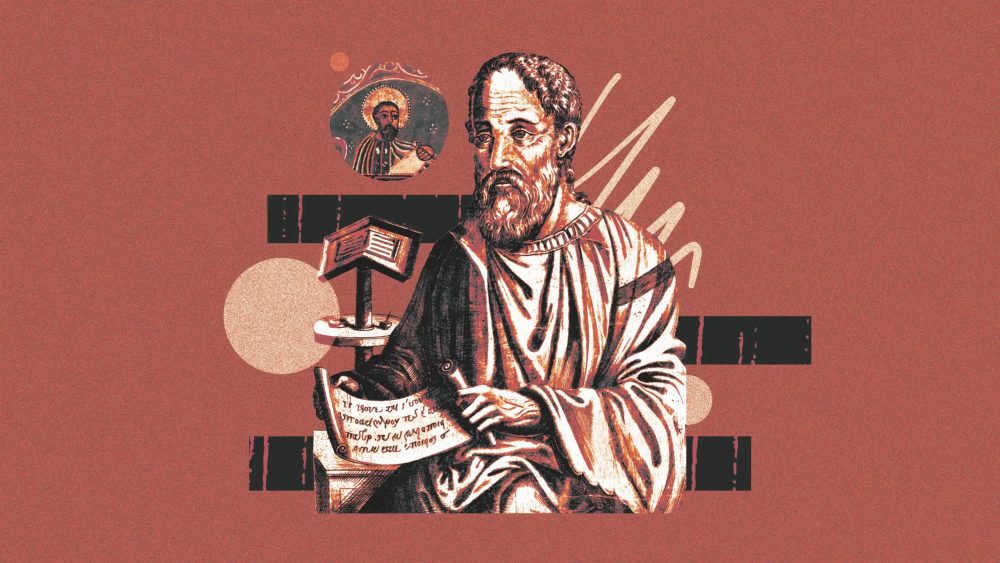Rev. José Mario O. Mandía
jmom.honlam.org
Let us leave Alexandria for a while and focus our attention on Caesarea in Palestine. As we have seen, the Edict of Milan in 313 A.D. marked a turning point for Christianity (cf. Church Fathers, 21). It brought freedom and peace for the Church, which allowed the development of doctrine, the liturgy, architecture and art.
In 231 A.D., Origen fled to Caesarea in Palestine where he founded a school and a huge library (cf. Church Fathers 17). Around 263 A.D., Eusebius was born. Eusebius was educated in the School of Caesarea and hence, was heavily influenced by Origen’s teachings.
“He was the most highly qualified exponent of the Christian culture of his time in very varied contexts, from theology to exegesis, from history to erudition. Eusebius is known above all as the first historian of Christianity, but he was also the greatest philologist of the ancient Church” (Pope Benedict XVI, General Audience, 13 June 2007).
Eusebius eventually became the Bishop of Caesarea around the year 313, when Constantine granted religious liberty to Christians. It was perhaps this fact that led Eusebius to admire Constantine. Constantine, in turn, esteemed and respected Eusebius. Eusebius himself delivered a panegyric at the death of Constantine in 337 (Eusebius would pass away around two years later).
In 325, Eusebius played a key role in the Council of Nicea (cf. Church Fathers, 22). He advocated a middle way between Arius’ position (the Son is inferior to the Father) and that of Athanasius (the Son is “homooúsios tõ Patrí” -“one in being with the Father”) but eventually – with some reluctance – signed the Creed that affirmed that Christ is God and is of the same nature as the Father.
We owe a lot to Eusebius for providing us with information regarding the early Church. He wrote ten volumes of Church History (Greek: Ἐκκλησιαστικὴ ἱστορία; Latin: Historia Ecclesiastica or Historia Ecclesiae) where “he resolved to reflect and to give an up-to-date report on the three centuries of Christianity, three centuries lived under persecution, drawing abundantly on the Christian and pagan sources preserved in particular in the great library of Caesarea” (Pope Benedict XVI, General Audience, 13 June 2007).
Many of the sources that Eusebius used were eventually lost. Thanks to his work, “he succeeded in saving from the doom of oblivion numerous events, important figures and literary works of the ancient Church. Thus, his work is a primary source of knowledge of the early centuries of Christianity” (Pope Benedict XVI, General Audience, 13 June 2007).
Eusebius said that it was his “purpose to write an account of the succession of the holy Apostles, as well as of the times which have elapsed from the days of our Savior to our own; and to relate the many important events which are said to have occurred in the history of the Church; and to mention those who have governed and presided over the Church in the most prominent dioceses, and those who in each generation have proclaimed the divine Word either orally or in writing.
“It is my purpose also to give the names and number and times of those who through love of innovation have run into the greatest errors, and, proclaiming themselves interpreters and promoters of a false doctrine have, like fierce wolves, unmercifully devastated the flock of Christ… and to record the ways and the times in which the divine word has been attacked by the Gentiles, and to describe the character of the great men who in various periods have defended it in the face of blood and of tortures… and finally, the mercy and benevolence which Our Saviour has afforded them all” (Church History I, 1, 1-3).
Pope Benedict says that the history Eusebius wrote is centered on Christ. The historian wrote: “Jesus alone of all those who have ever existed is even to the present day called Christ [that is Messiah and Saviour of the world] by all men throughout the world, and is confessed and witnessed to under this name, and is commemorated both by Greeks and Barbarians and even to this day is honored as a King by his followers throughout the world, and is admired as more than a prophet, and is glorified as the true and only High Priest of God. And besides all this, as the pre-existent Logos of God, called into being before all ages, he has received august honor from the Father, and is worshiped and adored as God. But most wonderful of all is the fact that we who have consecrated ourselves to him, honor him not only with our voices and with the sound of words, but also with complete elevation of soul, so that we choose to give testimony unto him rather than to preserve our own lives” (Church History I, 3, 19-20).
In the same General Audience quoted above, Benedict XVI points out that there is a ‘moral intention’ in writing the history of the Church. “Historical analysis is never an end in itself; it is not made solely with a view to knowing the past; rather, it focuses decisively on conversion and on an authentic witness of Christian life on the part of the faithful. It is a guide for us, too.” (Pope Benedict XVI, General Audience, 13 June 2007).
There are a good number of people, including many Catholics, who are critical of the faith not because they do not know the moral and doctrinal teachings of the Church. They are, however, ignorant of its history. They are not aware of how the Holy Spirit, in spite of man’s weakness, is able to make saints out of sinners. Thus, we understand John Henry Cardinal Newman’s claim that “to be deep in history is to cease to be Protestant.”


 Follow
Follow


